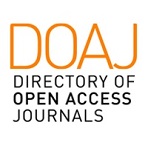Design, artesanato e participação: reflexões para a autonomia produtiva de mulheres no Maranhão.
DOI:
https://doi.org/10.29147/datjournal.v7i4.642Palavras-chave:
Artesanato, Autonomia, Design Participativo, MaranhãoResumo
Entre as diversas apreensões do artesanato tradicional no contexto brasileiro, a geração de renda e de autonomia produtiva de mulheres destacam-se como prioritárias na promoção da equidade de gênero. Neste artigo, discutimos os alcances e os desafios de se pensar e fazer design com mulheres artesãs com vistas à autonomia econômica, problematizando o uso de parâmetros institucionalizados, como os de mensuração de empoderamento feminino, utilizados pelo Fórum Econômico Mundial. A partir do design participativo e uso de ferramentas de fotoelicitação, propusemos ações de mapeamento de cadeias produtivas e a cocriação de materiais para a comercialização de produtos artesanais, visando a discussão sobre a autonomia produtiva de artesãs e a sua promoção. Buscou-se o compartilhamento de visões de mundo a partir da tomada de consciência e de iniciativas de fomento à produção, tratadas neste artigo como estudo de casos múltiplos (YIN, 2005), em três grupos produtivos no Maranhão. Como resultado, apresenta-se um debate sobre como a autonomia é produzida e percebida, como um processo de autorregulação consciente de tais grupos produtivos com os atores sociais envolvidos nas suas cadeias produtivas.
Downloads
Referências
ALVES, D.; TEIXEIRA, W. M. Ética em pesquisa em ciências sociais: regulamentação, prática científica e controvérsias. Educação e Pesquisa. São Paulo, vol.46, p.1-20, 2020. DOI: https://doi.org/10.1590/s1678-4634202046217376
BELTRÁN, E. P. Ecofeminismo. In: SOLÓN, P. (org.) Alternativas Sistêmicas. Bem viver, descrescimento, comuns, ecofeminismo, direitos da Mãe Terra e desglobalização. São Paulo: Elefante, 2019. 224p.
BONSIEPE, Gui. Design e crise. Agitprop. Revista Brasileira de design. Ano IV, n.44. 2012. s/p. Disponível em: http://www.agitprop.com.br/?pag=repertorio_det&id=75&titulo=repertorio. Acesso em 18/01/2022.
CUSICANQUI, Silvia. Ch’ixinakax utxiwa: una reflexión sobre prácticas y discursos descolonizadores - 1a ed. Buenos Aires: Tinta Limón, 2010.
DATASEBRAE. Artesanato. Disponível em: https://datasebrae.com.br/artesanato/ Acesso em 20/01/2022.
EHN, Pelle. Learning in participatory design as I found it. In: DISALVO, Betsy et al. Participatory Design for Learning Perspectives from Practice and Research. [s.l.]: Routledge, 2017. DOI: https://doi.org/10.4324/9781315630830-3
ESCOBAR, Arturo. Autonomía y diseño: la realización de lo comunal. Popayán: Universidad del Cauca; Sello Editorial, 2016.
FEDERICI, Silvia. O ponto zero da revolução: trabalho doméstico, reprodução e luta feminista. São Paulo: Elefante, 2019.
FÓRUM ECONÔMICO MUNDIAL. Empoderamento de mulheres. Avaliação das disparidades globais de gênero. Genebra, 2005.
FRY, T. Defuturing: a new Design Philosophy. London: Bloomsbury Publishing 2020. 288 p. DOI: https://doi.org/10.5040/9781350089563
_____. Reconstruções. Ecologia, Design, Filosofia. Trad. Gilson César Cardoso de Souza. São Paulo: EDUSP, 2009. 232p.
GUTIÉRREZ BORRERO, A., NAME, L. e CUNHA, G. R. Alfredo Gutiérrez Borrero – Desenhos-outros: da hegemonia ao giro decolonial e dos desenhos do sul aos dessocons (entrevista). Redobra, n. 15, ano 6, p. 59-86, 2020.
INGOLD, T. The creativity of undergoing. In: Pragmatics & Cognition, n.22, v.1, p.124–139, Aberdeen: John Benjamins Publishing Company, 2014. DOI: https://doi.org/10.1075/pc.22.1.07ing
(Omitido). Conter e contar: autonomía e autopoiesis entre mulheres, materiais e narrativas por meio de Design Anthropology. Pensamentos em Design, Belo Horizonte, v. 1, n. 1, p. 60-75, jul. 2021. DOI: https://doi.org/10.36704/pensemdes.v1i1.5923
(Omitido). et al. Design by means of anthropology towards participation practices: designers and craftswomen making things in Maranhão (BR). In: 16th PDC2020 - Participatory Design Conference, Manizales, v.1, 2020.
(Omitido).. Dos quintais às prateleiras: as imagens quilombolas e a produção da louça em Itamatatiua – Alcântara – Maranhão. São Luís, EDUFMA, 2020.
________. The collaborative turn: challenges and limits on the construction of the common plan and on autonomía in design. Strategic Design Research Journal, [s.l.], v. 11, n. 2, 2018. DOI: https://doi.org/10.4013/sdrj.2018.112.08
(Omitido). Cirandas de saberes: percursos cartográficos e práticas artesanais em Alcântara e Baixada Maranhense. São Luís: EDUFMA, 2017.
(Omitido). Identidade é valor: as cadeias produtivas do artesanato de Alcântara. São Luis: EdUFMA, 2011.
PAPANEK, Victor. Diseñar para el mundo real: Ecología humana y cambio social. Madrid: H. Blume, 1977.
PINK, Sarah. Doing visual ethnography. Images, media and representation in research: Sage. London: 2013.
(Omitido). Correspondências por meio de ferramentas de design: artesanato e empoderamento (ou aprisionamento?). 133f. Dissertação – Mestrado em Design. Programa de Pós Graduação em Design – (Omitido)., São Luís, 2018.
TUNSTALL, E. Decolonizing Design Innovation: Design Anthropology, Critical Anthropology, and Indigenous Knowledge. In: W. Gunn, T. Otto and R. Smith (Eds.) Design Anthropology: theory and practice. London, Delhi, New York, Sydney: Bloomsbury, 2013, p. 393-425.
WORLD ECONOMIC FORUM. Global Gender Gap Report. 2021. Disponível em: http://www3.weforum.org/docs/WEF_GGGR_2021.pdf. Acesso em 15 de abril de 2021.
YIN. R. K. Estudo de caso: planejamento e métodos. 3 ed., Porto Alegre: Bookman, 2005.
Downloads
Publicado
Como Citar
Edição
Seção
Licença
Copyright (c) 2022 DAT Journal

Este trabalho está licenciado sob uma licença Creative Commons Attribution 4.0 International License.


























